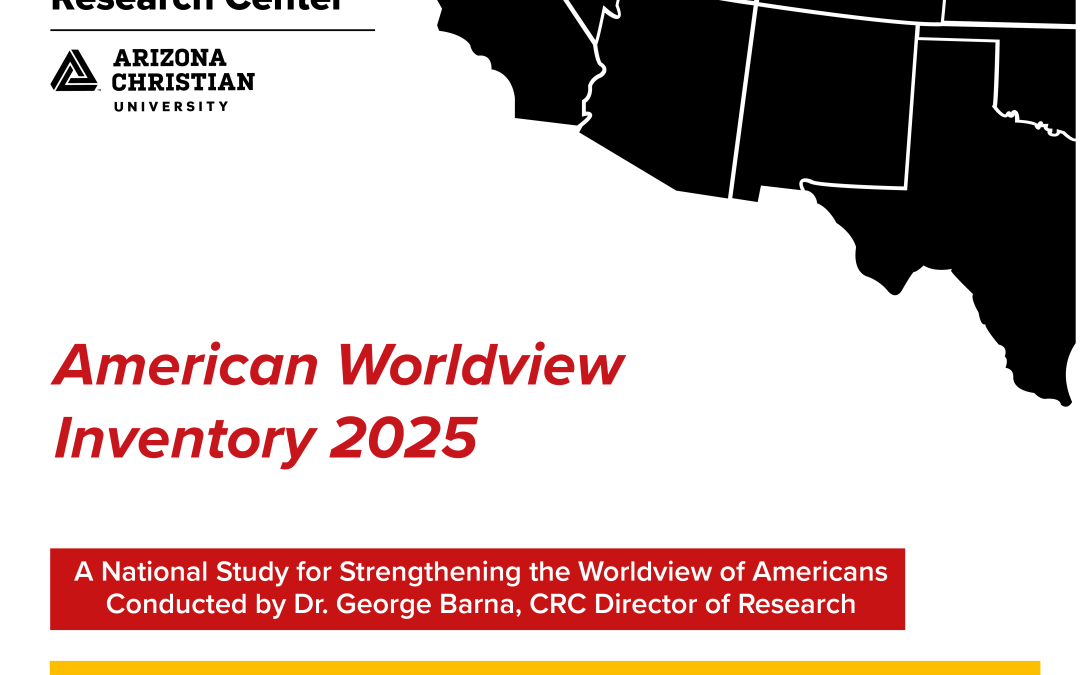From the Cultural Research Center at Arizona Christian University
GLENDALE, AZ —A new national study from the Cultural Research Center at Arizona Christian University reveals that over 50 million American adults who currently reject the existence of the God of the Bible are potentially open to believing in Him—under the right circumstances.
The new findings from veteran researcher George Barna discovered that among those 50 million are approximately 24 million adults who say they would be “completely open” to belief in God if someone they personally know and trust provided a credible and persuasive explanation. An additional 27 million said they “might be open” to reconsidering their beliefs under the same conditions.
According to Barna, these findings challenge the perception that spiritual doubters are unreachable and suggest that meaningful, trusted relationships can play a pivotal role in restoring faith. The research highlights an unexpected opportunity to lead doubters to God through personal, relationship-based outreach.
The research, part of the American Worldview Inventory 2025, provides a sobering snapshot of the nation’s spiritual landscape. While six in 10 adults deny the existence of the God described in the Bible, the study shows that many are not firmly rooted in that disbelief. In fact, one-quarter of those initially identifying as skeptics later retracted their doubt during the survey, ultimately affirming belief in God’s existence and influence.
One of the most surprising findings is that 40% of God rejectors identify as Christians, and 14% meet the theological definition of being born-again. Many attend church services, read the Bible, or express belief in Jesus—yet deny the existence of God the Father. This reveals a significant theological confusion within American Christianity and points to the fragmentation of biblical worldview.
The study also found that 73% of God rejectors are Millennials or Gen Xers, with many reporting struggles such as anxiety, depression, or addiction. Over half of those who now deny all supernatural forces once believed, and nearly two-thirds of them abandoned belief before age 22—most often due to personal experiences or internal reflection rather than outside influences like media, professors, or pop culture.
Barna’s past research has shown that a person’s worldview is largely in place by age 13, making early discipleship critical. The report notes that many young people begin with a belief in God but experience crises that challenge that foundation.
The research identifies relational ministry as the most biblically grounded and effective method for influencing belief. “The most effective persuasion tactic for generating belief in God among doubters is also the most biblical: person-to-person ministry based on conversations and behavioral modeling conveyed through a solid relationship between the doubter and the believer,” the report states.
According to Barna, “Maintaining strong connections with non-believers, modeling a God-trusting relationship, demonstrating patience, and always being prepared to explain the reasons for our faith and trust in God are crucial factors in the faith restoration of friends and family.”
“Creating solid faith is not a one-and-done experience; it is a continual conversation supported by behavioral modeling,” he explains. explains. And that responsibility, it emphasizes, “is not just the job of religious institutions; it is first and foremost the responsibility of parents and spiritual coaches.”
The full report, “Millions Admit They Could Be Persuaded That God Exists—Under the Right Conditions,” from the American Worldview Inventory 2025 is available at www.CulturalResearchCenter.com.

